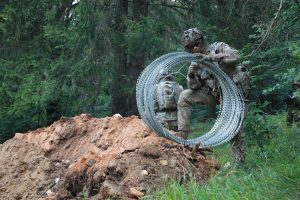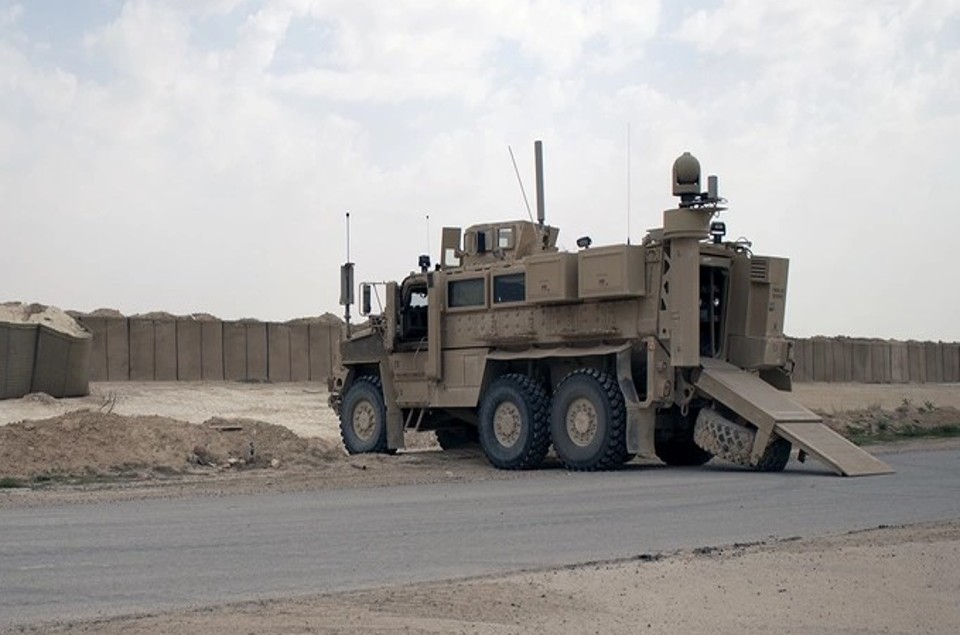What an Injury Taught Me About Leadership

Since I was 15 years old, I had dreamed of becoming an Officer in the United States Army. Now, life as I knew it was crumbling around me; it all began to feel as though my dreams were in jeopardy. After five years of working towards commissioning as an Army officer, I suffered an ACL injury requiring surgery just six months before taking the crucial commissioning PT test. I had never been injured or struggled with physical fitness before my surgery. During my recovery, my resilience was further tried when my Grandfather was diagnosed with terminal cancer, had not told any family members, and passed away two months later. The loss of my Grandpa tested my resilience as I never experienced the loss of a family member. Yet, at the same time, my desire to serve grew because my grandpa had also served. My command’s seemingly callous response created a deep fear of failure and shame when what I needed most was support.
Leadership Lesson: Know what is going on in your Soldiers’ lives
I felt a loss of identity as a female, athlete, and future Army officer following my surgery. Fearing I would become re-injured and end my Army career before it truly began, I never looked for a new CrossFit gym after my last one coincidentally closed. In my own company, I spent too much time believing I was not allowed to push myself or attend schools such as Air Assault. I felt that leaders would see my PT score and write me off as an unfit example. As someone that desired to seek challenging opportunities and previously excelled physically, it was heart-wrenching to believe that my desire to do well would be limited by my inability to control an injury. Grappling with this fear, I worked hard to perform well at my duties and get to know others the same way I wished someone had done for me. I began to understand what it meant to “be the leader you wish you had.” I shared my own struggles which helped others overcome their own self-doubt and adversity. Soldiers were able to see possibility when hearing that someone else was able to overcome an injury, enjoy working out again, perform well at their job, and be involved in the community. Sometimes simply knowing that we are not alone in our struggles offers necessary hope.
Leadership Lesson: Physical abilities do not define your ability to positively impact others
I lacked a solid support system- college friends went back home for the summer, family was located hours away, and did not understand my situation, and my husband, while wonderful, worked out of town for weeks at a time. My leadership, with good intentions, encouraged me to train hard, but that only added to my concerns and the heightened pressure I already placed on myself. Too early and too fast, I uncomfortably trained because my career depended on it and those that I respected demanded it. Furthermore, I was dismissed from medical care just three months after a major surgery and I was left to recovery without professional supervision. Poor education regarding recovery resulted in me being fearful of my body and of my inability to perform well. Lack of appropriate maturity and a solid support system left me in constant fear of judgment that I was not “good enough” to fulfill my goals as an Army officer.
Leadership Lesson: Injuries do not define you. Take time to heal properly
Upon entry to Active Duty, I was met with compassion regarding my injury and encouraged to step out of my comfort zone. Leaders invited me to workout with them and critiqued my running form; they embraced what I felt made me unworthy and showed me that my desire to be better, in fact, made me worthy. With their support, I was soon willing and ready to believe in myself the way others did. Similar to before my injury, I began to seek challenges such as attending Air Assault School and joining a CrossFit gym, believing my body was a machine capable of anything I trained it to do.
Then it all seemed to come crashing down… again. Just as I was beginning to strive for the mountain tops, I re-injured the same ACL. Flashbacks of swollen eyes from many tears and feeling inadequate once again conflicted with my aim to be a “good” Officer. I was fearful of letting down the leaders that had previously uplifted me or setting a bad example for other Soldiers; however, I quickly dismissed those fears when I was met with enormous support from my leadership, family, and CrossFit community. Leaders at varying levels listened to my concerns and reassured me that they would support, not judge my limitations and that I was no less capable as an officer if I attained a permanent profile for running. Co-workers, leadership, and my medical team actively listened to my physical and mental challenges and offered unwavering support. What once took my body three years to accomplish, I have met in less than a year post-surgery. Being surrounded by supportive leadership has made all the difference in my recovery and growth as an individual.
Leadership Lesson: Support directly impacts your Soldiers’ attitudes and performance
As leaders, we must recognize that we are all humans with desires to perform well, be cared about, appreciated, uplifted, and valued. Leaders that appreciate our uniqueness, listen and care can directly impact a Soldier’s performance. Had I been met with negativity, criticism, or shrewdness I would not be where I am today. Often, I wished I had never experienced my injury; however, growth does not always occur in the most convenient of manners. Trials such as these provide an opportunity to embrace humility, grit, and resilience for ourselves and our Soldiers.
Leadership Lesson: Listen to your Soldiers and support THEIR needs, not your own
———
1LT Kristi Reed is a former member of the Texas National Guard and later commissioned as an Active Duty Registered Nurse. She is currently attending the Critical Care (66S) Nursing Course; her prior assignments include working as a Medical Surgical and Critical Care nurse.
Image from: https://www.picpedia.org/keyboard/l/leadership.html



